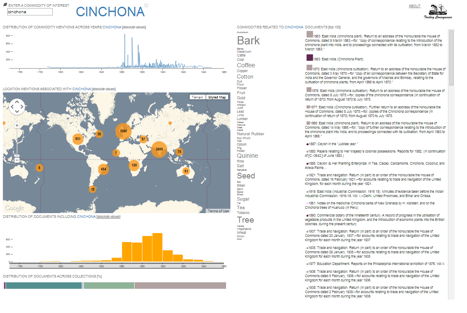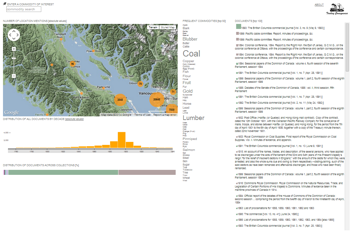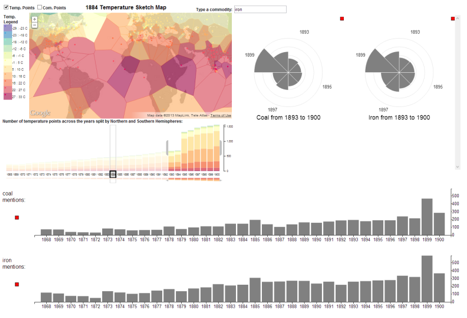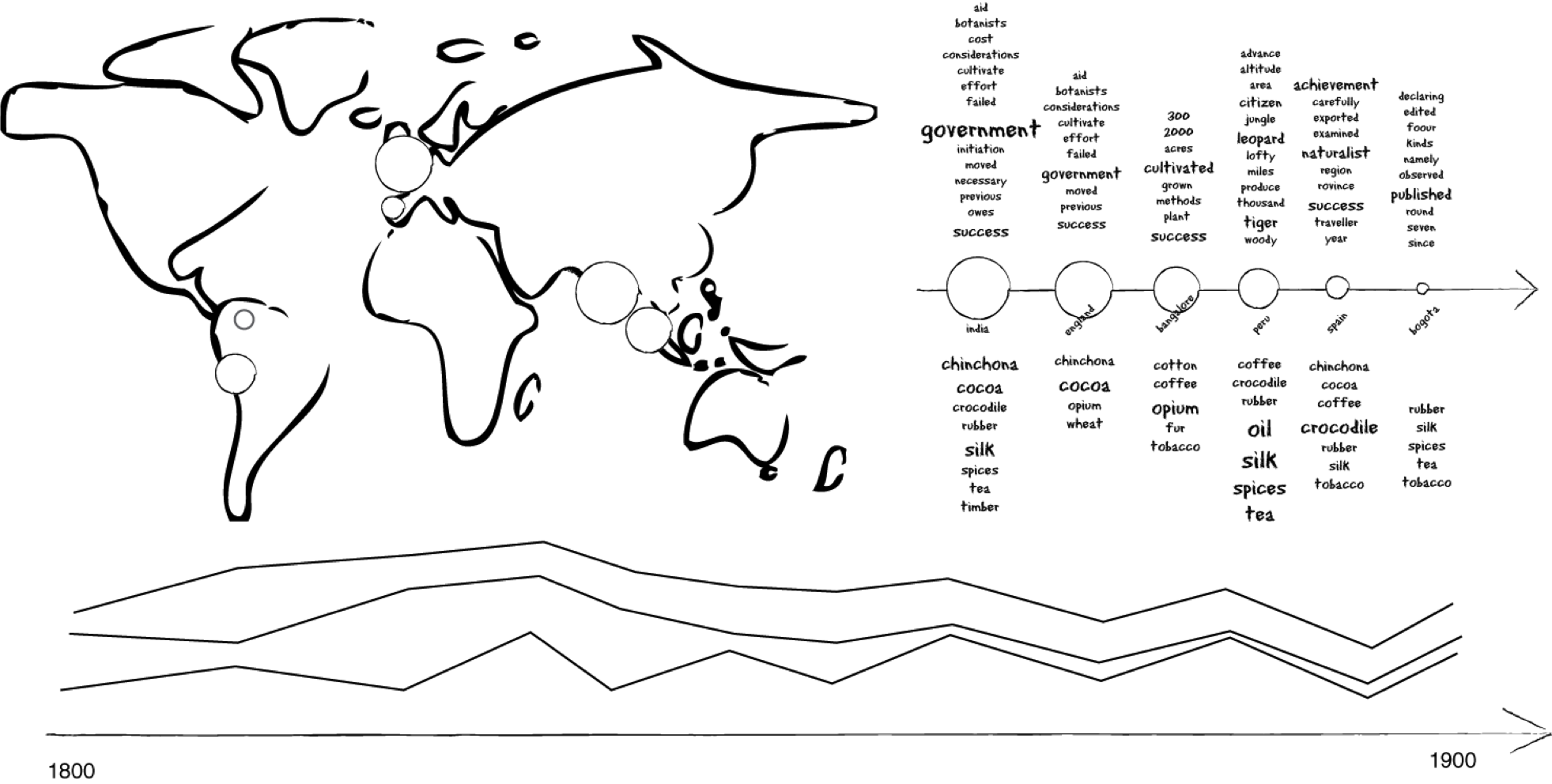Trading Consequences
Aaron Quigley, Uta Hinrichs & Others
Overview
The digitisation of historic records has started to change the way in which historic research is being conducted and what kind of research questions can be asked. Traditional research approaches in history may involve an in-depth study (close reading) of a small number of documents. In contrast, digitisation, in combination with computational analysis approaches such as text mining, provides the foundation for a broader perspective on the course of history based on hundreds and thousands of historic records, so called “distant reading”. However, making this vast and rich data available is not enough. We need tools that can facilitate targeted and open-ended exploration of this data and help to discover and decipher trends. Trading Consequences is an interdisciplinary research project between historians, computational linguists and visualisation specialists. We use text mining and visualisations to explore the growth of the global commodity trade in the nineteenth century. Feedback from a group of environmental historians during a workshop provided essential information to adapt advanced text mining and visualisation techniques to historical research. Expert feedback is an essential tool for effective interdisciplinary research in the digital humanities. Trading Consequences charts the commercial growth of the British Empire and it details the economic and environmental impact of shipping valuable commodities such as building materials, tea, fruit and spices.
In this project we have explored how information visualization can be used to help environmental historians explore large collections of historic records along different perspectives such as geographic location, time, and context. During this two year project eleven million pages of text were processed, resulting in a 150 gigabyte database. People can explore our visualisations, generated from the data, which help to make the historical findings more accessible. Sources included British and Canadian Government documents, newspapers from around the world, books and journals.
The project has been led by the University of Edinburgh in collaboration with the Universities of St Andrews and Saskatchewan and York University, Canada. The EDINA national data centre at University of Edinburgh has stored information garnered in the study. The two-year project forms part of Digging into Data, a wider initiative by Jisc, the UK’s digital information body. The work is supported by the Arts and Humanities Research Council, Economic and Social Research Council and the Canadian Social Sciences and Humanities Research Council.
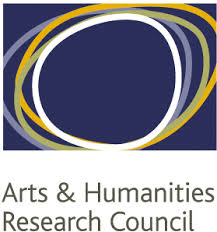
Publications
Uta Hinrichs, Beatrice Alex, Jim Clifford, Andrew Watson, Aaron Quigley, Ewan Klein and Colin Coates, Trading Consequences: A Case Study of Combining Text Mining and Visualization to Facilitate Document Exploration in, The Journal of Digital Scholarship in the Humanities (formerly LLC) (forthcoming)
Ewan Klein, Beatrice Alex, Claire Grover, Richard Tobin, Colin Coates, Jim Clifford, Aaron Quigley, Uta Hinrichs, James Reid, Nicola Osborne and Ian Fieldhouse. Digging into Data White Paper: Trading Consequences. March, 2014. White Paper – tradingconsequences.blogs.edina.ac.uk/files/2014/03/DiggingintoDataWhitePaper-final.pdf
Hinrichs, U., Alex, B., Clifford, J., Quigley, A. 2014. Trading Consequences: A Case Study of Combining Text Mining & Visualisation to Facilitate Document Exploration. In Proceedings of DH2014.
https://dh2014.files.wordpress.com/2014/07/dh2014_abstracts_proceedings_07-11.pdf
Hinrichs, U., Alex, B., Clifford, J. 2014. Data mining uncovers 19th century Britain’s fat habit. In The Conversation, 3rd April 2014. http://theconversation.com/data-mining-uncovers-19th-century-britains-fat-habit-25064
Links
http://tradingconsequences.blogs.edina.ac.uk/publications-presentations/


